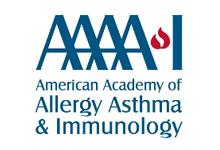When seasonal allergies strike, it can be difficult to know which allergy medication is best for relief. With so many over-the-counter (OTC) allergy products on the shelves, many people wonder whether they should try an OTC antihistamine or speak with a doctor about a prescription option.
Allergy season can be miserable, and for millions of people, finding the right relief is essential to staying productive and feeling well. Both OTC and prescription medications for seasonal allergies are approved by the FDA and proven to be safe and effective when used as directed. However, every allergy medicine can have side effects, and some may interact with other medications you’re currently taking.
One common question people ask is:
Should I use over-the-counter (OTC) allergy medications or get a prescription from my doctor? In this blog post, we’ll break down the differences, benefits, and drawbacks of both options to help you decide which one might be better for you.
What Are Over-the-Counter Allergy Medications?
Over-the-counter (OTC) allergy medications are available without a prescription and are commonly used to treat seasonal or mild allergies. They include:
- Antihistamines (e.g., Claritin®, Zyrtec®, Allegra®)
- Decongestants (e.g., Sudafed®, nasal sprays like Afrin®)
- Nasal corticosteroids (e.g., Flonase®, Nasacort®)
- Eye drops for itching or redness
Pros of OTC Medications:
- Convenient and easy to access
- Lower cost
- Effective for mild to moderate symptoms
- Many options available for children and adults
Cons of OTC Medications:
- May not be strong enough for severe allergies
- Potential side effects like drowsiness (especially with older antihistamines)
- Some decongestants can’t be used long-term
What Are Prescription Allergy Medications? h3 html
Prescription allergy medications are stronger and tailored to your specific allergy triggers. They may include:
- Stronger antihistamines or combination drugs
- Leukotriene receptor antagonists (e.g., Singulair®)
- Prescription nasal sprays or eye drops
- Allergy immunotherapy (allergy shots or tablets)
Pros of Prescription Medications:
- Targeted treatment for your specific allergies
- More effective for moderate to severe symptoms
- Longer-lasting relief
- Often recommended if OTC options aren’t enough
Cons of Prescription Medications:
- Requires a doctor visit and possibly allergy testing
- May cost more depending on insurance
- Some may carry more side effects or risks
Which One Is Better?
The answer depends on the severity and type of allergies you have:
- Mild seasonal allergies? OTC medications are usually effective and more affordable.
- Persistent or severe allergies? Prescription medications may offer better long-term relief.
- Allergies affecting your sleep, focus, or daily life? It’s best to consult an allergist or healthcare provider.
Many people start with OTC options and upgrade to prescription treatment if symptoms persist. In some cases, a combination of both—like using OTC nasal sprays with a prescription antihistamine—provides the best results.
When to See an Allergist?
If your allergy symptoms are not well-controlled with OTC medications, or if you’re unsure what’s triggering your reactions, seeing an allergist can make a big difference. They can help identify your specific allergens and create a personalized treatment plan.
That’s why it’s important to consult with a doctor or allergy specialist—especially if your seasonal allergy symptoms are persistent or severe. An expert can help you determine the most effective treatment based on your symptoms, allergy history, and any previous medications you’ve tried.
Final Thoughts
There’s no one-size-fits-all answer to the OTC vs. prescription allergy medication debate. The best approach is the one that brings you the most consistent relief with the fewest side effects. Start with OTC if your symptoms are manageable—but don’t hesitate to explore prescription options or consult a specialist if needed.
Don’t let pollen, ragweed, or mold spores take control of your life. Whether you need fast-acting OTC allergy relief or a long-term prescription plan, the right guidance can make all the difference. Contact our Allergy clinic Prosper today to schedule an appointment with one of the board-certified allergists at North Texas Allergy and Asthma Center







